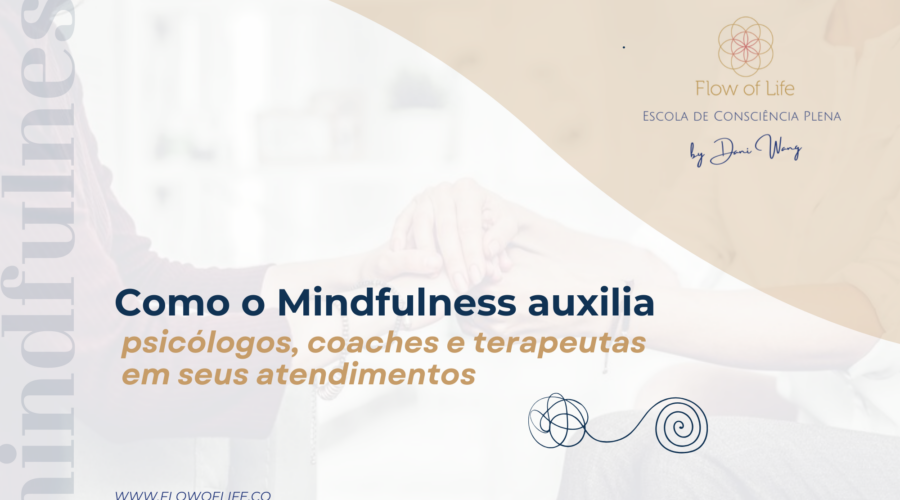In a fast-paced world, where interactions are becoming increasingly superficial and couple time is often swallowed up by the demands of routine, cultivating a healthy and deep relationship can be a challenge. This is where Mindfulness, the practice of Full Attention that has been conquering the world, emerges as a powerful tool for couples who want to strengthen their bond, promote empathy and build a more conscious connection.
What is Mindfulness in Relationships?
Mindfulness means being present in the present moment, with acceptance and without judgment. When applied to a relationship, this practice allows partners to be fully aware of each other, the emotions that emerge in the relationship and the way they respond to everyday situations. It's about replacing automatic reactivity with conscious choice, promoting greater harmony in the couple.
A study by Carson et al. (2004), published in the Journal of Marital and Family Therapy, showed that couples who practice Mindfulness together experience greater relationship satisfaction, better communication and reduced levels of conflict. This approach helps partners connect more deeply and develop mutual empathy.
Benefits of Mindfulness for Couples
1. improved communication
Mindfulness practice encourages active listening, allowing partners to really hear each other without interruptions or judgments. Studies show that this form of conscious communication reduces misunderstandings and promotes greater clarity in interactions (Wachs & Cordova, 2007).
2. Conflict Reduction
Many arguments in couples are fueled by impulsive reactions and repetitive patterns of behavior. Mindfulness helps to identify these patterns, creating space for more conscious and less reactive responses, as demonstrated by Barnes et al. (2007).
3. Increased Intimacy
When partners are truly present for each other, intimacy blossoms and the connection grows stronger. Conscious touch, the exchange of glances and simple moments of connection without distractions become powerful in strengthening the emotional and physical bond.
4. Strengthening empathy
Mindfulness develops the ability to understand and validate the other person's emotions, reducing judgments and promoting greater acceptance. This increase in empathy is fundamental to creating a more harmonious and loving relationship.
How to Practice Mindfulness as a Couple
- Breathe Together
Start with a simple practice: sit side by side, close your eyes and synchronize your breathing. Feeling the rhythm of each other's breathing is a powerful form of connection and presence. -
Create a Moment of Gratitude
Before going to sleep, share something you are grateful for about your partner, your day or your life. You can write it down on a piece of paper and put it in a 'gratitude jar'. This practice of emotional mindfulness strengthens the bonds of affection and gratitude in the relationship and beyond. -
Active Listening Exercise
Set aside a few minutes to talk without interruptions. Choose a topic or a question for this exercise. You can pre-set a time, such as three minutes each. Choose who will start and that partner will speak first, while the other just listens, with full attention and without commenting or asking anything. After the time is up, reverse roles. This practice increases mutual understanding and conscious communication. -
Guided Meditation for Couples
Try a guided meditation together, focused on emotional connection. This practice creates a safe space to explore and strengthen your bond. Practice the habit of meditating together on a daily basis. -
Moments Without Technology
Establish periods of the day or week when you will be together, without external distractions and, if possible, just the two of you. Turn off your cell phones and other electronic devices, such as television and computers. Devote yourselves entirely to each other. If you deem it necessary, prepare activities for this time, such as preparing dinner, going for a walk in the park or planning a trip. These moments of total presence strengthen intimacy.
Science confirms
Practicing mindfulness as a couple is not just a romantic idea; it is a scientifically based approach. A study by Atkinson (2013) showed that couples who adopt mindfulness practices have greater relationship satisfaction and emotional resilience. In addition, mindfulness has been associated with a reduction in symptoms of anxiety and depression, problems that often have a negative impact on relationships.
Transform your relationship
The practice of mindfulness for couples doesn't require excessive time or advanced skills. It starts with choosing to be present, listening, breathing and sharing moments with attention and love. By developing this mindful presence, you not only improve the quality of your relationship, but also create a space for mutual growth and shared happiness.
Devote your full attention to love. After all, a healthy relationship is built on small moments lived with presence, care and connection.
Do you like it? How about calling your loved one to participate in the Eu S.O.U.? This course is perfect for couples to practice and gain powerful insights into relationship habits.




